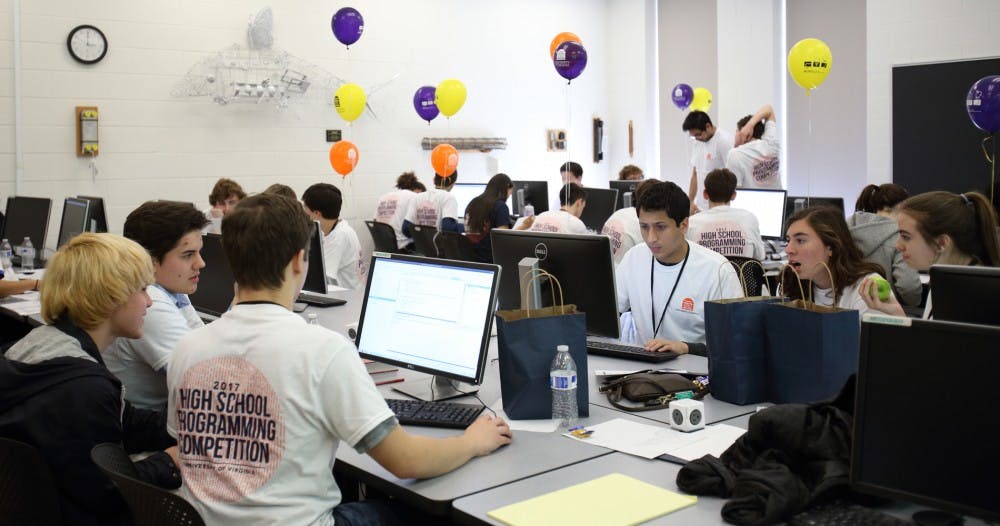The Association for Computing Machinery at the University hosted the largest high school programming contest in the mid-Atlantic Saturday with over 50 teams competing.
Students participating in the High School Programming Contest raced to correctly answer the most computing questions in the least amount of time. The Thomas Jefferson High School “senior team” placed first, with Richard Montgomery’s team “RMHS 1” placing second.
ACM Chair Andrew Norton, a fourth-year Engineering student, said the ACM hosted HSPC in order to foster interest in computer science among high school students. In fact, Norton was one of the students who was impacted by participation in HSPC.
“I did this contest when I was in high school. I got to meet current students and faculty through that, and I said, ‘Oh, this is really fun. I’m going to go to U.Va. and study computer science,’” Norton said.
ACM targets high school students with the hopes of keeping them interested in computer science, especially if a student belongs to an underrepresented minority group.
“At this age, exposing them to computer science is really critical, because I hear of a lot of minorities that end up not going into CS even though they enjoyed it in high school,” said Marina Sanusi, contest director and third-year Engineering student and computer science major.
Coaches bring their computer science students in hopes of encouraging an interest in computer science. Additionally, computer science teachers aim to give bright students a real-world programming challenge.
“The challenges are definitely different from just a textbook problem. It makes them think, it makes them work together. They only have four people to one computer so they have to collaborate to solve these problems,” said Blythe Samuels, a computer science teacher at Powhatan High School.
Contest organizers agree that HSPC provides a realistic exposure to computing while allowing students to develop essential skills.
“It is a really important thing because it gives them practice doing actual things that computer scientists do all the time,” Norton said. “It exercises problem-solving ability, even working together as a team.”
Some coaches bring their students for exposure to more than just programming puzzles.
“We’re a very rural county in Virginia, and we’re not a very diverse group. So they come to events like this and get to see students from all around the country — a little bit of exposure,” Samuels said.
The contest started seven years ago with only three teams competing. Since then the competition has expanded, with 50 teams participating in the HSPC for the last three years. Contest organizers had to cap participation due to limited resources.
“The last several years we’ve stayed steady at 50 teams because U.Va. just doesn’t have the computer labs to hold more teams at this point,” Sanusi said.
Aaron Bloomfield, a professor in computer science at the University who serves as a faculty advisor for the event, said that the process is largely student-run. However, Bloomfield plays an important role.
“I help with some of the coordination; I think I provide some of the institutional memory from one year to the next,” Bloomfield said.
The process of organizing the event starts in the fall. Organizers try to recruit an adequate number of volunteers, which Sanusi said was made harder because Hack.UVA was held during the same weekend this year.
The problems that the students must solve have to be created months in advance. They are based off of the problems used for the International Collegiate Programing Contest. The scoring is based on the metrics used by the ACM-ICPC, Norton said.
“The U.Va. programming competition is a fun way for my students to showcase their programming talent and passion. It’s also giving them an opportunity to work in ways that I can’t challenge them,” Samuels said, when asked why she brings her students to HSPC.







